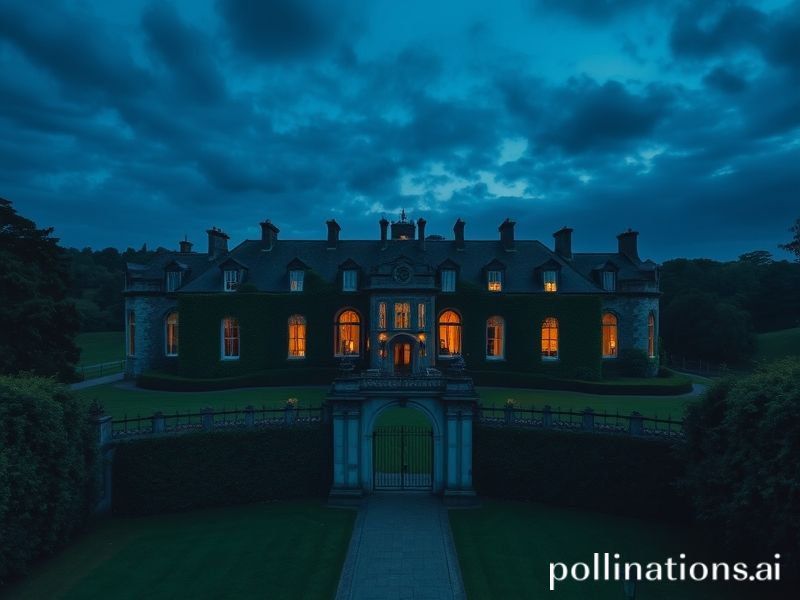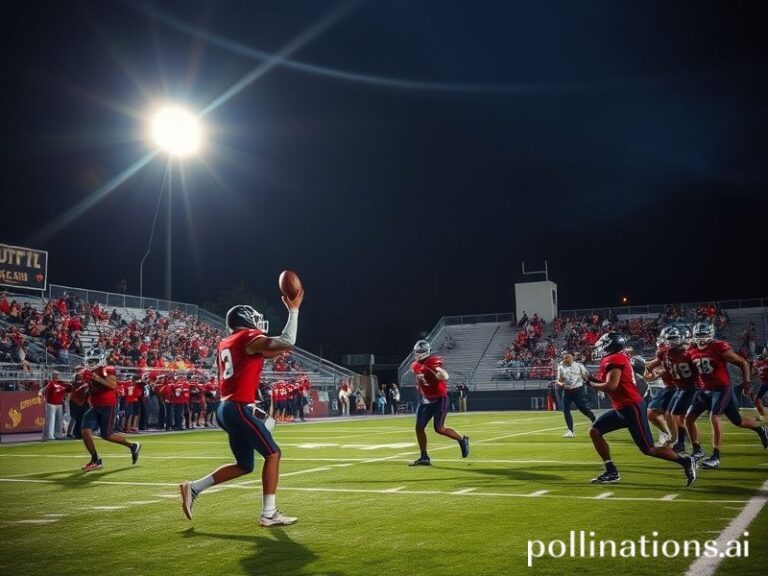House of Guinness: How a Dublin Brewery Built a Black-Hearted Global Empire—And Convinced Us to Say Cheers
House of Guinness: How a Dublin Brewery Conquered the Planet, One Dark Pint at a Time
By Our Man in the Foam-Flecked Trenches
DUBLIN—On a drizzly Tuesday that looks exactly like the Monday before it, the black gates of St. James’s Gate open onto a queue stretching from Uruguay to Uzbekistan. The pilgrims clutch boarding passes, vintage rugby jerseys, and the universal hope that a 250-year-old stout will make sense of their over-leveraged lives. Welcome to the House of Guinness—part family saga, part global sedative, and the only empire still expanding in a century allergic to empires.
The Guinness dynasty began, as all good misadventures do, with a 1759 lease signed for £45 per annum—roughly the current price of two airport pints. Arthur Guinness, a Protestant with Catholic ambitions, wagered that water plus barley plus time could outlast British rule, potato famines, and whatever fresh horror tomorrow’s headlines bring. He was, annoyingly, correct. The brewery now pumps out ten million glasses daily, enough to drown the sorrows of every disappointed millennial on LinkedIn.
What began as a local porter for dockworkers has become a liquid passport. From Lagos to Lima, the harp logo signals both sophistication and the quiet admission that you have given up on wine. In Nigeria, Guinness Extra Foreign Stout is marketed as performance fuel—an irony not lost on a population that still endures daily blackouts. In Malaysia, the stout is brewed halal-compliant, a theological contortion that would make Aquinas reach for the aspirin. And in the United States, bartenders serve it in plastic cups at Irish-themed pubs where no one can pronounce “Sláinte,” but everyone knows the caloric damage by heart.
The family itself—now diluted into the polite aristocracy of investment trusts and charitable foundations—has perfected the art of looking benevolent while remaining extraordinarily rich. The Guinness Book of Records started as a 1950s bar bet about Europe’s fastest game bird and metastasized into the planet’s most reliable generator of human futility (longest fingernails, largest collection of rubber ducks, etc.). One might call it the family’s second empire: monetising mankind’s bottomless appetite for self-inflicted absurdity.
Their philanthropy is equally global, if conveniently tax-efficient. From marine conservation in the Seychelles to literacy programs in Dhaka, the Guinness funds flow like, well, Guinness—smooth, dark, and with a creamy head of self-congratulation. Critics note that the same trusts once held shares in tobacco conglomerates and arms manufacturers, proving that moral clarity, like head retention, is transient.
Economically, the brand is a case study in soft power. During the 2008 financial crisis, when Irish banks imploded faster than a badly poured pint, Guinness sales actually rose—proof that existential dread pairs nicely with roasted malt. Today, Diageo, the multinational that swallowed the brewery in 1997, shifts profits through Dutch subsidiaries with the elegance of a seasoned money-launderer, ensuring that Ireland’s most famous export pays roughly as much corporate tax as a rural parish raffle.
And yet, the House of Guinness endures. Brexit threatened cross-border supply chains; the brewery simply brewed more in continental Europe and kept calm. Climate change menaces barley yields; the marketing department rebranded it as “limited edition terroir.” Even the pandemic, which shuttered pubs and forced humanity to confront its own reflection on Zoom, merely accelerated the sale of canned nitro widgets so suburban dads could pretend they’re still interesting.
Standing atop the Gravity Bar, tourists from five continents press their noses to the glass, gazing at a city that sold its Georgian soul for Google offices and weekend stag parties. They sip the velvet blackness, post identical selfies, and quietly wonder whether anything this good can also be this ubiquitous without some Faustian compromise. The answer, like the head on a properly poured pint, is both yes and no—destined to collapse into something flatter, but still drinkable.
In the end, the House of Guinness is less a dynasty than a mirror: dark, slightly bitter, and reassuringly predictable in an age that can’t even guarantee next week’s weather. We raise the glass, toast to our own resilience, and ignore the sediment at the bottom. After all, every empire leaves a residue; the trick is convincing the world it’s part of the flavor.







